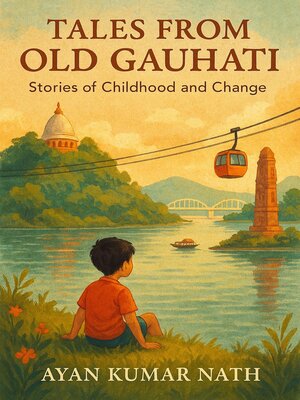
Sign up to save your library
With an OverDrive account, you can save your favorite libraries for at-a-glance information about availability. Find out more about OverDrive accounts.
Find this title in Libby, the library reading app by OverDrive.



Search for a digital library with this title
Title found at these libraries:
| Library Name | Distance |
|---|---|
| Loading... |
Childhood exists in a country all its own—a place we've all inhabited but can never fully return to. It's a landscape of firsts: first friendships, first heartbreaks, first discoveries of the world's wonders and cruelties. The borders of this country are barely noticeable as we cross them in youth, but with each passing year, they solidify until one day, often without our noticing, we find ourselves firmly on the other side, looking back across an unbridgeable distance.
Memory becomes our only passport back, and what unreliable travel documents memories make. They fade and shift, embellish and diminish. The streets we once roamed seem smaller when revisited, yet in other ways, memories magnify—a kind gesture from a teacher becomes a pivotal moment, a summer afternoon stretches into eternity, the taste of a long-ago ice cream becomes more vivid than yesterday's dinner.
In the landscape of my childhood, Guwahati spreads itself across the terrain of memory like a living map. Not the Guwahati of tourist brochures, but a personal geography marked by landmarks invisible to strangers: the exact spot where I fell from a bicycle; the tree whose branches formed a perfect reading nook; the shortcut home that passed the house of a dog whose bark was far worse than his nonexistent bite.
The Guwahati of my youth was itself a city in transition—neither the colonial outpost it had once been nor the sprawling urban center it would become. It existed in that in-between space, much like childhood itself exists between infancy and adulthood—a temporary state that feels, while you're in it, like it will last forever.
Time moved differently then. Summer afternoons stretched toward infinity, school days lasted eons. Yet paradoxically, the years of childhood themselves passed in a flash. One day we were racing through open fields playing tag; the next, those same fields were being measured for apartment buildings. Growing up is like watching the hour hand of a clock—stare directly at it, and it appears motionless; look away and back again, and somehow it has moved.
Perhaps what makes childhood so poignant in retrospect is not just its impermanence but its unrepeatable nature. We can revisit the physical locations of our youth, but we cannot recapture the experience of encountering them for the first time, with eyes unclouded by knowledge or expectation. The wonder of discovery is a one-time gift.
Yet memories of childhood are not merely relics of a lost past. The child we were is not gone but transformed, still present in our reflexive responses, our instinctive fears and joys, our deepest values. The lessons learned during those formative years become the invisible architecture of our character.
The stories that follow capture fragments of this vanished country as it existed in Guwahati from the 1980s through the early 2000s. They're about the tension between preservation and progress, between honoring what was and embracing what could be. They're about the ways in which places shape people, and people shape places, in a continuous dialogue across generations.
As you read these stories, perhaps you will recognize something of your own childhood, regardless of where and when you grew up. And in that recognition, we find a curious truth: though we can never truly return to childhood, through stories and memories, we can send messages across the border—reminding ourselves that the map that guided us then still exists, folded away but not forgotten, its creases still influencing the paths we choose today.






